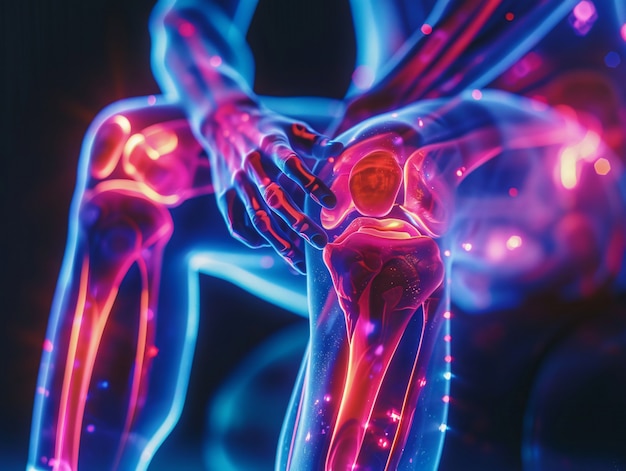
Muscle cramps are something most of us have dealt with at some point. They can be caused by things like dehydration, imbalanced electrolytes, and stress. This article will dive into why muscle cramps happen and what you can do to prevent them.
Our bodies are about 60% water, and when we don’t drink enough, our muscles suffer. Dehydration is a common cause of muscle cramps because muscles need plenty of water to function properly. To avoid cramps, drink lots of fluids and try to cut back on caffeine.
Another major cause of muscle cramps is overusing or overexerting your muscles. If you’re looking for ways to prevent cramps, incorporating static stretches into your routine can be helpful. Static stretching involves holding a position, like bending down to touch your toes, for at least 30 seconds. Doing these stretches before bed can help you sleep better and reduce nighttime leg cramps by over 50%.
Electrolytes, found in foods like fruits and veggies, are crucial for maintaining fluid and mineral balance in our bodies. They help keep everything functioning smoothly, including preventing muscle cramps. Staying hydrated, especially during workouts, is essential to keep cramps at bay. This is even more critical when you’re exercising in hot weather.
Stretching before and after workouts can also help prevent cramps. For activities like long-distance running, make sure to use proper form and alternate movements between your legs. Knowing how to check your electrolyte levels is vital, especially if you exercise frequently. Low electrolyte levels often signal a need for specific nutrients like sodium, potassium, or chloride. Eating foods rich in these can help balance your levels.
Dynamic exercises are excellent for preventing muscle cramps and warming up before a workout. Cramps can be frustrating, especially when you’re trying to get fit, but there are several ways to keep them at bay.
Hydrating properly is one of the best strategies because muscles need to eliminate waste like lactic acid. Stretching, particularly before and after exercise, is also crucial. If your workout is intense, consider taking breaks or even a light walk before bedtime to help.
Warm baths with Epsom salts can provide relief from muscle cramps. You can soak in the bath or rub the salts on the affected area using a cloth. Dynamic exercises before your workout can also reduce cramping by improving blood flow and joint flexibility.
Muscle cramps are common and can stem from various factors like dehydration, excessive exercise, lack of sleep, and insufficient stretching. To prevent them, make sure to drink water throughout the day, stretch before and after exercise, get enough sleep, and not overdo it with your workouts.